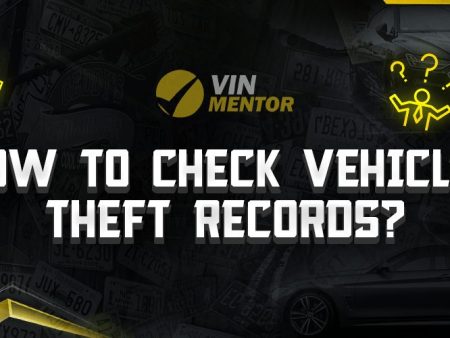

Have you ever wondered why vehicles go to auction? There are various reasons behind this phenomenon, and in this article, we will explore the factors that contribute to vehicles being sold at auctions. Read on to uncover the key insights into why vehicles go to auction.
Key Takeaways
- Understanding the factors that lead to vehicles being sold at auctions can help buyers make informed decisions.
- Auctions provide a platform for selling vehicles quickly and efficiently.
- Vehicles may go to auction due to financial issues or repossession.
- Auctions are not limited to used vehicles; new vehicles may also be sold through this channel.
What Are the Reasons Behind Vehicles Being Sent to Auctions?
When it comes to vehicles being sold at auctions, there are several reasons why they end up in these settings. Let’s explore the common factors that lead to vehicles being auctioned off:
Off-lease and Rental Fleet Vehicles
- Off-lease vehicles, which are returned to the dealership after the expiration of a lease agreement, are often sold at auctions. These vehicles are no longer needed by the original lessees, and the dealership chooses to auction them off to recover their investment.
- Rental fleet companies regularly update their rental vehicle inventory by replacing older vehicles with newer models. As a result, a surplus of used rental vehicles is generated, which is then sent to auction for resale.
Trade-ins and Dealer Inventory
- When customers purchase new vehicles from dealerships, they often trade in their old vehicles as part of the transaction. These trade-in vehicles are commonly sold at auctions as a means for dealerships to optimize their inventory turnover and make room for new arrivals.
- Dealerships may also decide to send excess inventory or vehicles that have been on their lot for an extended period to auctions. This allows them to reduce their inventory and free up capital for other investments.
Repossessed Vehicles
- In cases where borrowers default on their auto loans, lenders have the right to repossess the vehicles as collateral. To recoup their financial losses, lenders typically sell these repossessed vehicles at auctions. By selling them through auctions, lenders can reach a wide range of potential buyers and maximize their chances of achieving a fair market value for the vehicles.
Seized and Confiscated Vehicles
- Law enforcement agencies play a crucial role in combating illegal activities such as smuggling, drug trafficking, and fraud. When vehicles are involved in these illicit activities, they are seized by law enforcement authorities. Once these vehicles are no longer required as evidence, they are auctioned off to the public. The proceeds from these auctions are often used to support law enforcement operations or victims of crime.
Fleet Vehicles
- Companies that maintain large vehicle fleets, such as government agencies or utility companies, often retire their vehicles after a certain period of use or when they reach a predetermined mileage threshold. To dispose of these retired fleet vehicles, companies choose to sell them at auctions. This allows them to streamline their fleet operations and generate revenue by selling the vehicles to interested buyers.
Conclusion
Understanding why vehicles go to auction can provide valuable insights for buyers. Whether it’s off-lease vehicles, trade-ins, repossessed cars, seized vehicles, or fleet retirements, auctions offer a platform for quick and efficient sales. To make an informed purchase, it’s essential to gather information about the vehicle’s history, including its VIN check. You can choose from our recommended best VIN Check Websites list to ensure a thorough assessment of the vehicle’s background. With this knowledge, buyers can navigate auctions with confidence and find the right vehicle for their needs.
FAQ
Are vehicles sold at auctions only used cars, or can new cars also be found?
The article mentions that auctions are not limited to used vehicles, and new vehicles may also be sold through this channel. Dealerships or manufacturers may choose to send new cars to auctions for various reasons, such as excess inventory or to optimize their sales strategies.
How can buyers ensure they are making an informed purchase at vehicle auctions?
The article suggests that buyers should gather information about the vehicle’s history, including conducting a VIN check. It recommends using recommended VIN Check Websites to assess the vehicle’s background thoroughly. This can provide buyers with important details about the vehicle’s condition, ownership history, and potential issues.
Are auctions the only way for lenders to sell repossessed vehicles, or are there other options?
While auctions provide lenders with a wide range of potential buyers and maximize their chances of achieving a fair market value, it doesn’t mean that auctions are the only option. Lenders may also choose other methods to sell repossessed vehicles, such as private sales or working with dealerships or specialized repossessed vehicle sales platforms.
What happens to the proceeds from auctions of seized and confiscated vehicles?
The article mentions that the proceeds from auctions of seized and confiscated vehicles are often used to support law enforcement operations or victims of crime. However, the specific allocation of the auction proceeds may vary depending on local laws and regulations.
Can individuals participate in vehicle auctions, or are they exclusive to dealerships and businesses?
Vehicle auctions can be open to both dealerships and individual buyers. While some auctions may be restricted to licensed dealers or require certain qualifications, there are also public auctions where individuals can participate and bid on vehicles. It’s important to research and find auctions that are accessible to individual buyers if interested in purchasing a vehicle through this channel.












